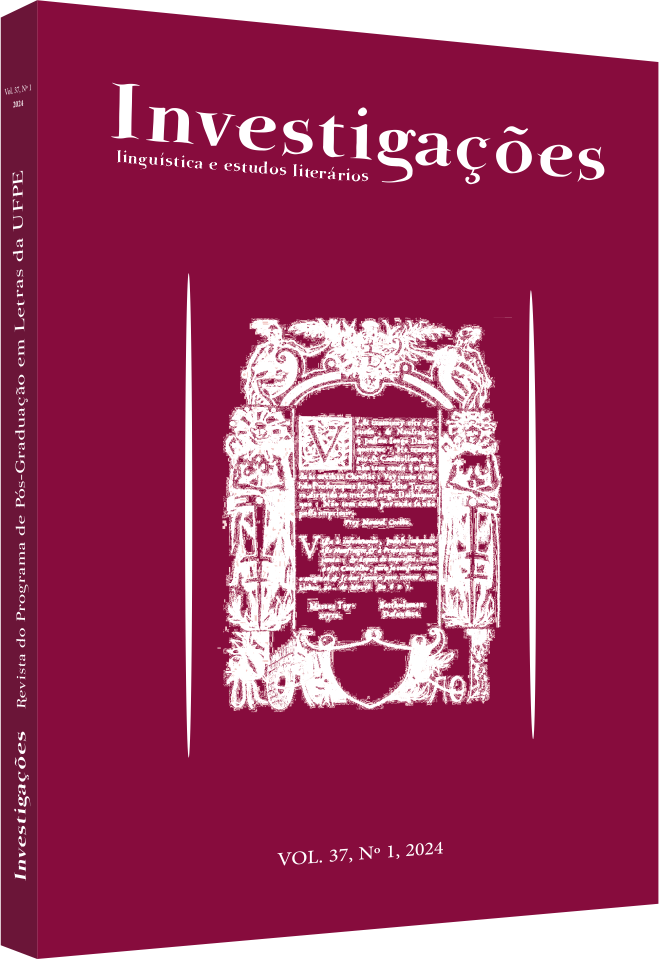The Georgics of Virgil and the economy of everetism as a factor of success in classical culture
DOI:
https://doi.org/10.51359/2175-294x.2024.258551Keywords:
evergetism, Maecenas, Georgics, VirgilAbstract
This article proposes a historical analysis of a type of patronage evergetism that, from Ptolemy Soter to Caesar Augustus, provided the resources for the Hellenistic cultural genres to thrive, allowing for the successful realization of Classical Culture. This effective type of evergetism would reach Rome, first by promoting Livius Andronicus, then by providing for the formation of the Scipionic Circle and others until the consolidation of Hellenism within the Augustan and Maecenas cultural reforms. The Georgics will serve as an example of the success of this primary patronage.
References
BRANDÃO, José Luís; OLIVEIRA, Francisco de. História de Roma antiga: império romano do ocidente e romanidade hispânica. v. 2: Coimbra: Imprensa da Universidade de Coimbra, 2020.
CARDOSO, Zélia de Almeida. A literatura latina. São Paulo: Martins Fontes, 2011.
FLOWER, Derek Adie. Biblioteca de Alexandria. As histórias da maior biblioteca da Antiguidade. Tradução: Otacílio Nunes e Valter Ponte. São Paulo: Ed. Nova Alexandria, 2010.
GRANDJEAN, Catherine. Le mond helénistique. Paris: Armand Colin, 2008.
HOMERO. Odiseia. Tradução: Trajano Vieira. São Paulo: Ed. 34, 2011.
JAEGER, Werner Wilhelm. Paidéia. A formação do homem grego. Tradução: Artur M. Parreira. 4. ed., São Paulo: Martins Fontes, 2001.
LEYCK, Gwendolyn. Mesopotâmia. A invenção da cidade. Tradução: Álvaro Cabral. Rio de Janeiro: Imago Ed., 2003.
MANFREDI, Valerio. Akropolis. A grande epopeia de Atenas. Tradução: Mario Fondelli. Porto Alegre: L± Rio de Janeiro: Rocco, 2008.
MARTIN, Thomas R. Roma Antiga de Rômulo a Justiniano. Tradução: Iuri Abreu. Porto Alegre: L&PM, 2019.
MOSSÉ, Claude. Dicionário da civilização grega. Tradução: Carlos Ramalhete. Rio de Janeiro: Jorge Zahar Ed., 2004.
MUMFORD, Lewis. A cidade na história. Suas origens, transformações e perspectivas. Tradução: Neil R. da Silva. 4. ed. São Paulo: Marins Fontes, 1998.
PARATORE, Ettore. História da literatura latina. Tradução: Manuel Losa. Lisboa: Fundação Calouste Gulbenkian, 1983.
PETIT, Paul. História Antiga. Tradução: Pedro Moacyr Campos. 4. ed., Rio de Janeiro: Difel, 1979.
TOYNBEE, Arnold. A humanidade e a mãe-terra. Uma história narrativa do mundo. Tradução: Helena Maria Camacho Martins Pereira e Alzira Soares da Rocha. 2. ed. Rio de Janeiro: Ed. Guanabara, 1987.
VERNANT, Jean-Pierre. Mito e sociedade na Grécia Antiga. Tradução: Myriam Campello. Rio de Janeiro: José Olympio, 1992.
VEYNE, Paul. Pão e Circo. Sociologia histórica de um pluralismo político. Tradução: Lineimar Pereira Marins. 2. ed., São Paulo: Editora Unesp, 2015.
VIRGÍLIO. Geórgicas. Tradução: Manuel Odorico Mendes. Cotia: Ateliê Editorial, 2019.
Downloads
Published
How to Cite
Issue
Section
License
Copyright (c) 2024 José Alexandre Ferreira Maia

This work is licensed under a Creative Commons Attribution 4.0 International License.
Authors who publish with Revista Investigações agree to the following terms:
Authors retain copyright and grant the journal right of first publication with the work simultaneously licensed under the Creative Commons Attribution 4.0 International (CC BY 4.0) license that allows others to share the work with an acknowledgement of the work's authorship and initial publication in this journal.
Authors are able to enter into separate, additional contractual arrangements for the non-exclusive distribution of the journal's published version of the work (e.g., post it to an institutional repository or publish it in a book), with an acknowledgement of its initial publication in this journal.
You are free to:
Share — copy and redistribute the material in any medium or format for any purpose, even commercially.
Adapt — remix, transform, and build upon the material for any purpose, even commercially.
The licensor cannot revoke these freedoms as long as you follow the license terms.
Under the following terms:
Attribution — You must give appropriate credit , provide a link to the license, and indicate if changes were made . You may do so in any reasonable manner, but not in any way that suggests the licensor endorses you or your use.
No additional restrictions — You may not apply legal terms or technological measures that legally restrict others from doing anything the license permits.

